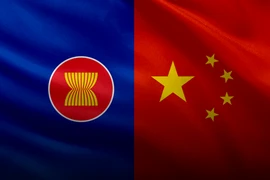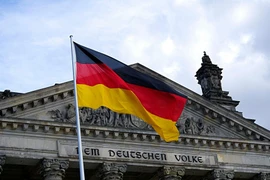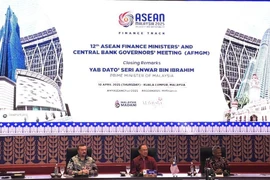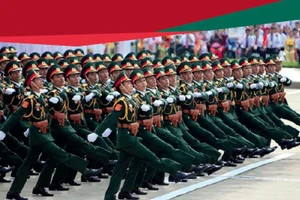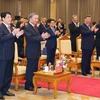Bangkok (VNA) - Thailand is ready to support ASEAN’s collective approach in negotiating with the US over its reciprocal tariffs on imports from countries in the region, Prime Minister Paetongtarn Shinawatra said on April 17.
She made the remarks after talks with her Malaysian counterpart Anwar Ibrahim, who is on a two-day working visit to Thailand at the invitation of Paetongtarn.
Paetongtarn said they discussed how ASEAN can join forces to deal with US tariff hikes, adding that the combined population of member countries - about 670 million - makes the bloc a huge market and a force to be reckoned with.
The issue would be discussed at the next ASEAN meeting, she said, adding that Thailand is ready to support the idea of ASEAN joining forces for the benefit of all member countries.
The PM shared that Finance Minister Pichai Chunhavajira will lead a Thai delegation to Washington for talks on April 23.
US President Donald Trump on April 9 announced a pause on all reciprocal tariffs - including a 36% levy on Thailand - as countries began lining up to seek negotiations. However, a 10% baseline tariff on all goods still applies to almost all US trading partners./.

See more
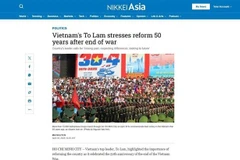
Nikkei Asia highlights Vietnamese people’s pride at reunification celebration
The article reported Lam’s calling on Vietnamese people to build upon the spirit of the great victory in the spring of 1975, and the values and triumphs over the past 40 years under 'Doi Moi' (renewal) to reap greater triumphs and forge new miracles in the new era.
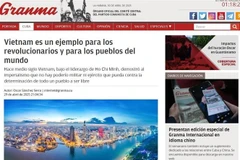
Vietnam in the hearts of Cuban friends
The daily Juventud Rebelde (Rebel Youth) - a newspaper of the Young Communist League - described Vietnam’s victory on April 30, 1975 as a “brilliant epic” and highlighted “President Ho Chi Minh affirmed that ‘Vietnam is one, the Vietnamese people are one’ – and that day, that aspiration came true.”
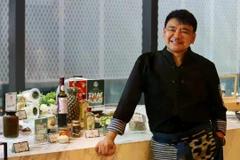
Thailand highlights ‘Khao Mak’ as symbol of wellness and soft power
This is the first time Thailand has dedicated an initiative to elevate Khao Mak as a global symbol of wellness and cultural identity.
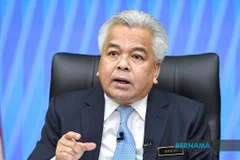
ASEAN officials discuss Community Vision 2045, Timor Leste membership, nuclear free zone
As a regional bloc that maintains collaboration on shared interests, all discussions at the ASEAN SOM meetings were centred on ensuring comprehensive and forward-looking approaches for a more prosperous, peaceful, and secure ASEAN region.
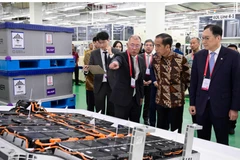
RoK firms pledge nearly 2 billion USD in new investments in Indonesia
The planned increase is equal to more than 10% of the 15.4 billion USD that Korean firms had already invested in Indonesia, said Airlangga.
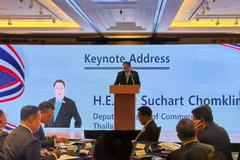
Thailand, RoK boost trade ties at business forum
A Thai official has called for stronger economic collaboration between Thailand and the Republic of Korea while addressing a bilateral business forum in Seoul.
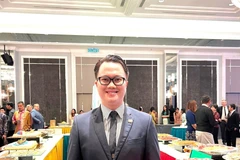
National reunification celebration helps raise Vietnam’s int'l standing: Malaysian researcher
The military parade marking the 50th anniversary of the liberation of the South and national reunification not only showcased Vietnam’s national defence capabilities but also delivered a powerful message to the international community: no external force can divide Vietnam through military means or economic pressure.
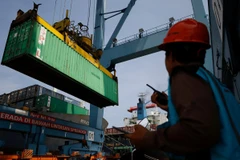
Thailand urges regional collaboration to ensure economic security
ASEAN members have agreed that they should work together by leveraging their own strengths to seek the best common result in response to uncertainties surrounding the US tariff policy.
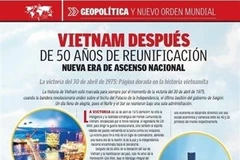
Mexican media praise Vietnam's victory on April 30, 1975
Highlighting Vietnam’s development journey, Voces Del Periodista, representing a network of 45,000 professional journalists, noted that five decades since reunification and nearly 40 years into the Doi Moi (Renewal) reforms, Vietnam has entered a new stage of progress – an era defined by national aspiration and global ambition.
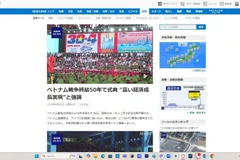
Japanese media spotlight Vietnam’s unity message at April 30 victory celebration
Describing the atmosphere in Ho Chi Minh City on this momentous occasion, Asahi wrote that across the downtown city, banners and posters commemorating 50 years of national reunification were on display.
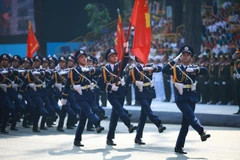
Int'l media praises Vietnam’s message of peace on 50th reunification anniversary
The reports widely praised Vietnam’s message of wishing to join the international community in building a future of peace, prosperity, unity, and development.
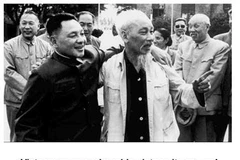
Nicaraguan, Algerian media highlight significance of Vietnam’s April 30 Victory
“It was not only a great victory for the Vietnamese people in their arduous struggle against the US, but also a shining symbol of revolutionary heroism, the will for independence, resilience, and the strength of great national unity,” La Primerisima cited the Party chief as saying.

Lao media hails Vietnam’s 1975 Spring Victory
The 1975 victory was also one of the greatest victories and most glorious milestones in Vietnam’s thousands-year history of national construction and defence,

Indonesia, France strengthen cooperation to promote energy transition
Since 2007, the Indonesian and French governments have been involved in multiple collaborative projects focused on various strategic sectors, such as energy transition, eco-friendly transportation, the blue economy, natural resources management, and green finance.
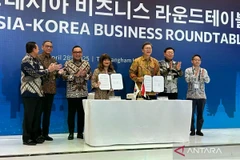
Korea-Indonesia Business Council set up to facilitate win-win cooperation
Korean investments in Indonesia totalled 15.4 billion USD as of late 2023, proving that Indonesia is not only a destination for investment, but also a strategic partner in long-term, sustainable growth.

Malaysia develops sustainable semiconductor ecosystem
BSIF I will target investments in companies within and adjacent to the semiconductor value chain, including high-tech manufacturing and automation.
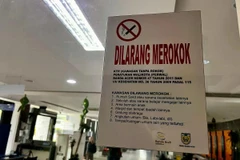
Indonesia urges regions to apply smoke-free area policy actively
The Indonesian Ministry of Health has urged regional governments nationwide to move actively in implementing the smoke-free area policy to reduce secondhand smoke exposure.
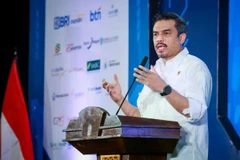
Indonesia plans task force to combat sale of counterfeit goods
The minister said that the report has prompted the Ministry of MSMEs to move toward the formation of a task force for the protection and empowerment of MSMEs in Indonesia, adding that the planned task force would be empowered to take action against those involved in the distribution and sale of counterfeit goods.

Thailand's new digital arrival cards to help track criminals
Travellers must apply at least three days before the date of their planned arrival in Thailand. Applications will be accepted on the TDAC website starting on April 28 for people arriving on May 1.

Thailand tightens control over mobile subscriptions to curb cybercrime
Prasert said the mobile phone numbers had been registered since January 1, 2022. About 700,000 mobile phone numbers registered to foreigners in Thailand together with about 1.8 million mobile phone numbers that had not been registered to anyone will be checked.
